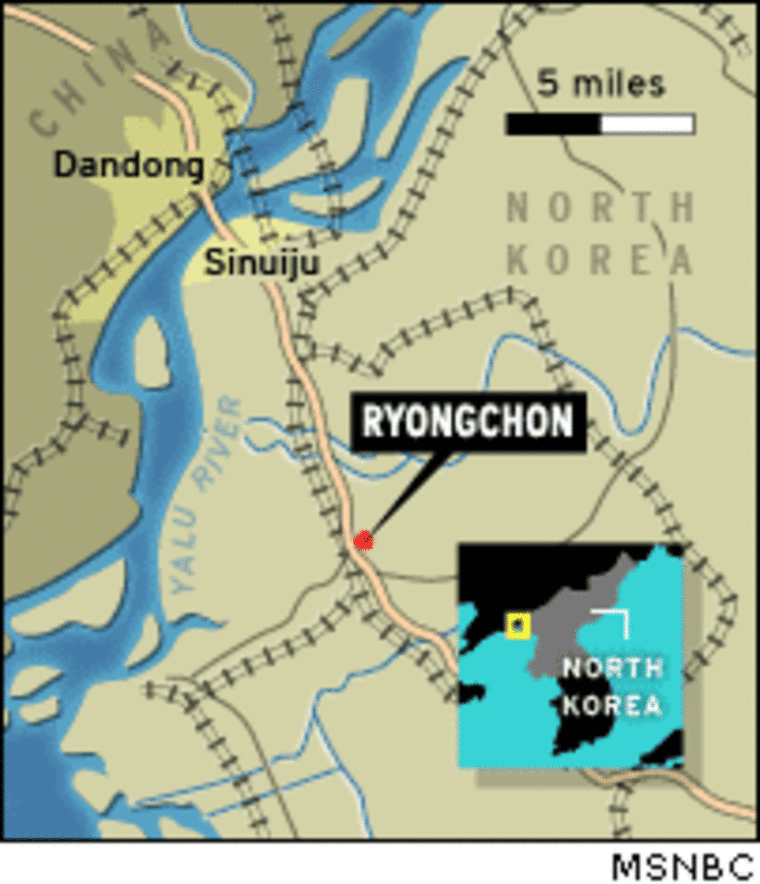The town of Ryongchon was an obscure stop on North Korea’s main rail artery to China until a deadly train blast seared its name onto the map of a world that knows little about the communist North.
Ryongchon (meaning “Dragon River” and sometimes spelled Yongchon) is about 15 miles from the North Korean border city of Sinuiju, across the Yalu River from Dandong in China.
“Traffic is quite light and it is overall a very quiet and typical North Korean town,” said former Sinuiju resident Choi Yong-ju, a North Korean woman who defected to South Korea.
All of Ryongchon’s main government offices, military bases and residential areas were near the railway station, Choi told Reuters, adding that she believed the population of the town was about 20,000.
She reached the South in 2000 after escaping to China a year earlier.
Many of those buildings may have been destroyed in Thursday’s huge explosion at the railway station.
Machinery factory
The blasts killed between 54 and 150 people, according to early reports, and injured more than 1,200 while destroying thousands of homes and hurling debris high into the sky.

South Korean media reports said its main industry was the Bukjong Machinery plant, donated in the old East Bloc communist era by the Soviet Union and East Germany.
It makes bulldozers and ship engines. Ryongchon also has some textile and light industry factories.
The town does not feature in major South Korean history books or in a search of a U.S. disarmament database of all known or suspected North Korean sites for production of missiles or weapons of mass destruction.
The CIA’s Web site says Ryongchon has a population of 130,000, but this could include the entire county. Officials in Seoul say there are fuel storage sites in and around the town.